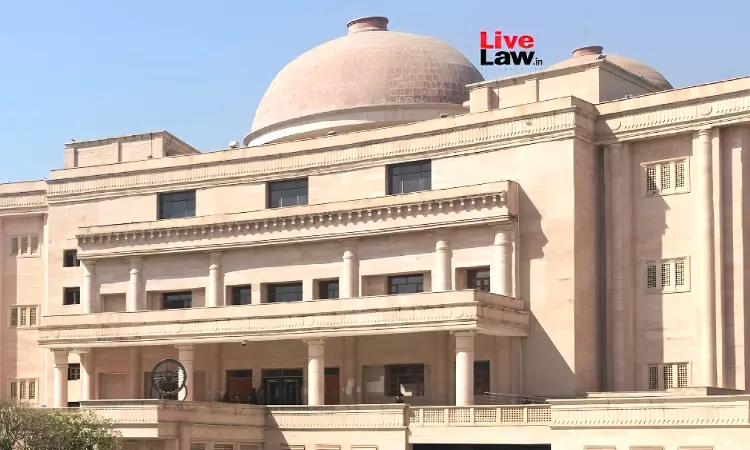Allahabad High Court Orders Inquiry Into Illegal Encroachments, Makeshift Temples In Lucknow Park
Sparsh Upadhyay
2 Oct 2025 8:03 PM IST

The Allahabad High Court (Lucknow Bench) recently took strong exception to unauthorized encroachments in a public park in Lucknow and directed the authorities to hold an inquiry into how makeshift temples and other non-public structures were allowed to come up on the land.
A Bench of Justice Sangeeta Chandra and Justice Brij Raj Singh passed the order while hearing a writ petition seeking removal of illegal encroachments and prevention of anti-social activities in the park.
The petitioner-Bebi Pal, a resident of the colony, submitted that the park, once adorned with greenery, swings and recreational facilities, has been usurped by anti-social elements.
Pal claimed that such elements had installed tin roofs, brought household items such as beds, cupboards, coolers, cots and even set up a makeshift temple inside the park.
It was also alleged that the women residents, who protested, were intimidated and heckled. It was lastly submitted that the constructions of makeshift religious symbols using cemented pipes and stones had been done only to gain public sympathy and such illegal encroachment upon public land had been ignored by the Nagar Nigam despite repeated requests.
Importantly, the petitioner referred to Section 6 of the UP Parks, Playgrounds and Open Spaces(Preservation and Regulation) Act, 1975 and Rule 10 of the 2005 Rules made in this regard, to submit that the prescribed authority had failed to perform a statutory duty.
The Court, at the outset, took judicial note of the repeated orders of the Supreme Court regarding unauthorized encroachments on public parks, public places and roads by construction of mazars, makeshift temples and other religious structures.
In this regard, the HC referred extensively to Union of India v. State of Gujarat [SLP (C) No. 8519/2006], wherein the apex court had, through a series of interim orders, restrained any further unauthorized construction of temples, mosques, churches, or gurudwaras on public spaces and directed District Collectors and Magistrates to ensure compliance.
The Supreme Court had also recorded in 2011 that Uttar Pradesh had identified over 45,000 unauthorized religious structures and issued directions for their removal, relocation or case-by-case review.
Ultimately, in 2018, the Supreme Court transferred the responsibility of monitoring compliance to the respective High Courts.
Against this backdrop, the High Court directed the Commissioner, Nagar Nigam, Lucknow to ask the Deputy Commissioner to enquire from the Beat Constables as to how makeshift temples were permitted in the park and why no report was submitted to the appropriate authority.
The Commissioner of Police, Lucknow has also been directed to ensure that the Deputy Commissioner files his affidavit regarding the action taken by the Station House Officer for preventing unauthorized constructions and why the matter was not reported to higher authorities.
The Court also ordered that the Nagar Nigam's appropriate officer inspect the park and submit a report on how such constructions had come up.
It further directed that a personal affidavit be filed by the Commissioner, Lucknow Municipal Corporation on the next date of hearing.
The matter has been listed for further hearing on October 14, 2025.


